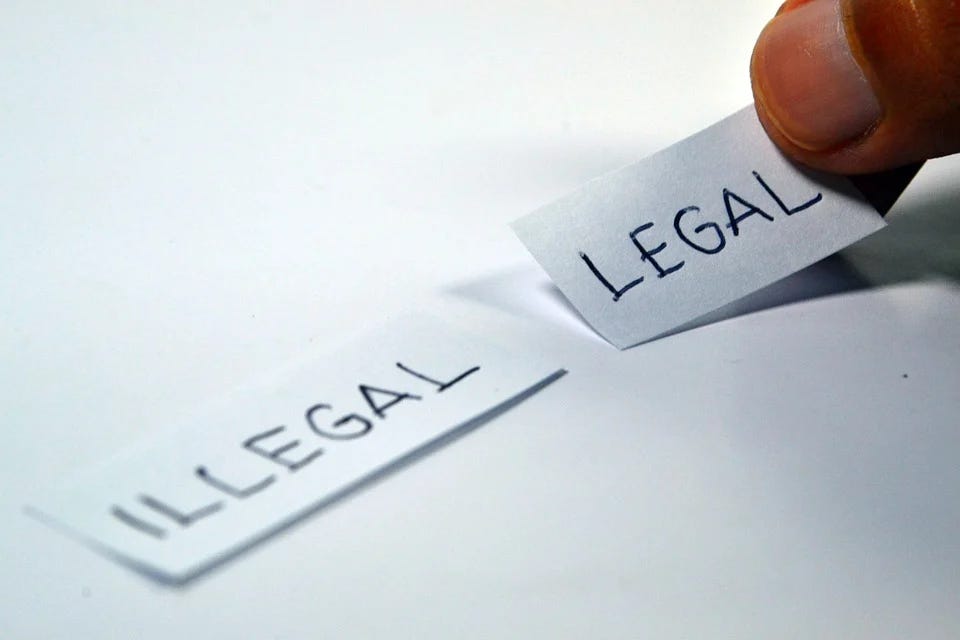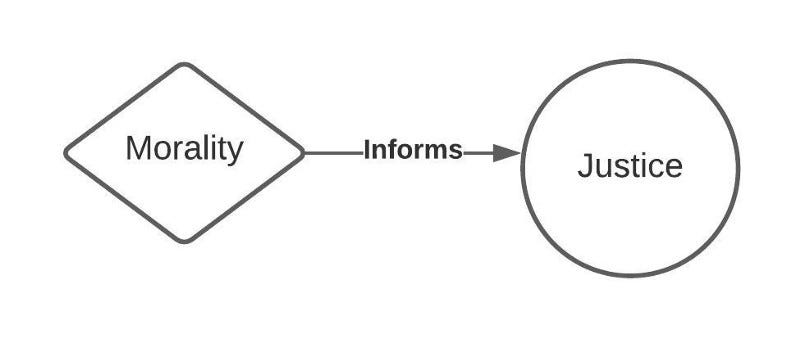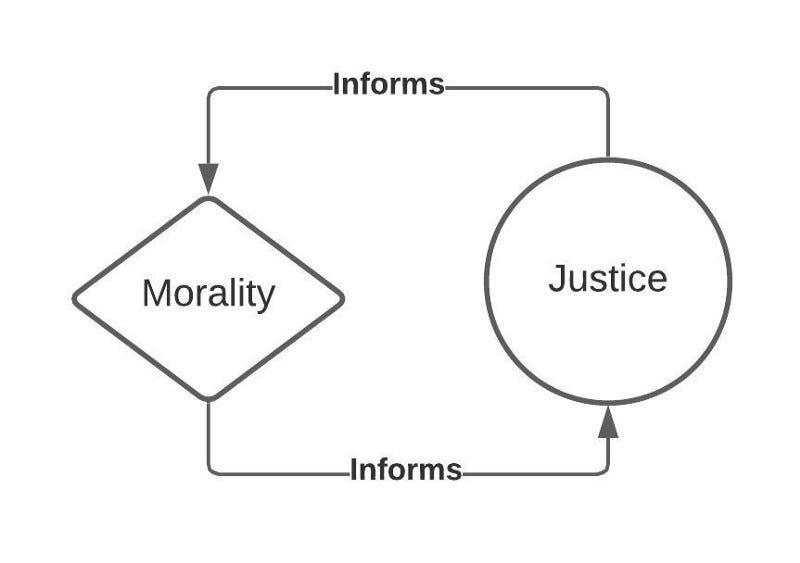
In discussions with many friends (lawyers and otherwise), I find that the ideas of morality and justice are often described as synonymous. I believe that in making this equivalence, they are making an innocent but crucial mistake on the purpose, abilities and role of the justice system in our society.
Morality
Defining morality can be a difficult task. Morality is, at its core, a personal feeling an individual has about whether or not an action is ‘good’ or ‘bad’. There are many nuances to this that are thoroughly discussed by the writers of moral philosophy. I don’t want to discuss those issues here; what I want to address is how our morals translate into our system of justice.
Almost all of us know and accept that murdering someone is morally wrong, which is why no one is surprised why every jurisdiction has a law against murder. This is so patently obvious and therefore isn’t really worth examining here. We need to find a more morally ambiguous dilemma.
Take speeding for example. All jurisdictions that I am aware of have laws limiting the speed of vehicles on roads. This speed is (supposedly) scientifically determined to reduce deaths and accidents. But from a moral perspective, speeding *feels* different. Speeding doesn’t give us a deep feeling of ‘wrongness’ in our guts the way that murder does. In fact, there are situations where speeding can be a moral imperative: an ambulance rushing someone to the hospital, breaking the speed limit in the process, is a moral good, not a moral evil. The majority of rules, laws and regulations that we interact with daily fall into this category: morally ambiguous but crucial for a civil society.
We can conclude from this example that there are situations where what is ‘moral’ is not ‘just’ and what is ‘just’ is not ‘moral’. This is a crucial finding as the two ideas are often conflated.
Justice as Applied Morals
The reality of the society we live in is that each individual has their own set of self-determined moralities, imprinted on them through lived experiences. We all may agree that murder is ‘wrong’ but may differ on how ‘wrong’ it is in a given context. Other moral decisions are more starkly divided (e.g. abortion). If each of us behaved morally as defined by our own standards absent a unifying judicial system, chaos would ensue. We need a system in order to make sure that all citizens are playing by the same rules, even if their morality doesn’t direct them to. Justice then, is the best aggregation of our individual moralities into a system that we can all live within.
How then should this impact how we interrogate and draft our laws?
We need to understand that our laws are, at best, an approximation of the average morality of the population. They are not perfect and they certainly should not reinforce our understanding of morality. When we view our justice system as representative of morality, the flaws endemic to the justice system can create flawed moral reasoning.
Let’s look at some examples.
Example 1: Informed Justice

The above example is straightforward and demonstrates how our laws and justice system should be informed. As views on morality change, those changes should be reflected in our laws and justice system.
Note in the above that the laws and justice don’t inform morality. I propose that this is the ideal relationship between the two concepts.
Example 2: Justice/Morality Feedback Loop

The second example is what we too often slide into, with our sensitivities around morality and justice influence and reinforce one another. This sort of thinking often sounds like: “X must be wrong because it is illegal.”
Exploring False Moralities
There are numerous examples of this but perhaps the most widespread is the longstanding war on drugs. In the 1970, governments around the world took a harder line against drugs and the drug trade, which was growing internationally. These steps included the creation of the DEA in the US and an expanded sentencing regimes around the world. These regimes have carried forward, largely unchanged, into the present.
As the revised laws that were drafted in the 70’s moved through the generations to the present, the original rational for them seems to have been lost. Now, minor possession of marijuana is seen as wrong simply because it has always been that way. This sense or wrongness, that possession of marijuana is morally bad, is tainted by influence of the justice system telling us it is because it always has been.
This isn’t to say that there may not be valid reason why marijuana possession is morally bad. Just like alcohol, it can cause damage to people’s bodies and reputation but those consequences are independent of our view that it is unjust.
It may feel pedantic to focus too much on this but it is amazing how many actions we feel are ‘wrong’ simply because they are codified into law. Looking beyond criminal laws and into white collar crime, regulation of businesses or city bylaws, everything is subject to this sort of bias.
Some laws may be justified on the basis of keeping order in a civil society. For example, its tough to understand why a speed limit is 100kph instead of 90kph or 110kph. One may be preferable based on research but the crux of the law is that we need a uniform limit in order to create safe, reliable transportation options: a moral good.
Complicating this is the proposal that adherence to the law is a moral good. After all, if laws were ignored, we would not be able to enforce or allow an organized moral order to flourish. What we can’t do, is confuse the moral good of following the law with the morality laws themselves. This instructs us to follow the law, but also to use democratic means to eliminate laws that are not grounded in morality.
Takeaway
This topic may feel like a bit of an abstract topic, but keep in in mind over the next week and use it to examine why we behave the way we do in a society. Are we following laws because of their moral grounding, or simply because they are ‘on the books’?



